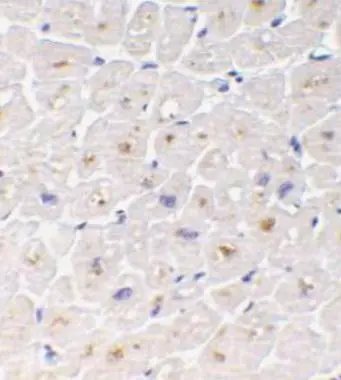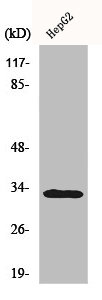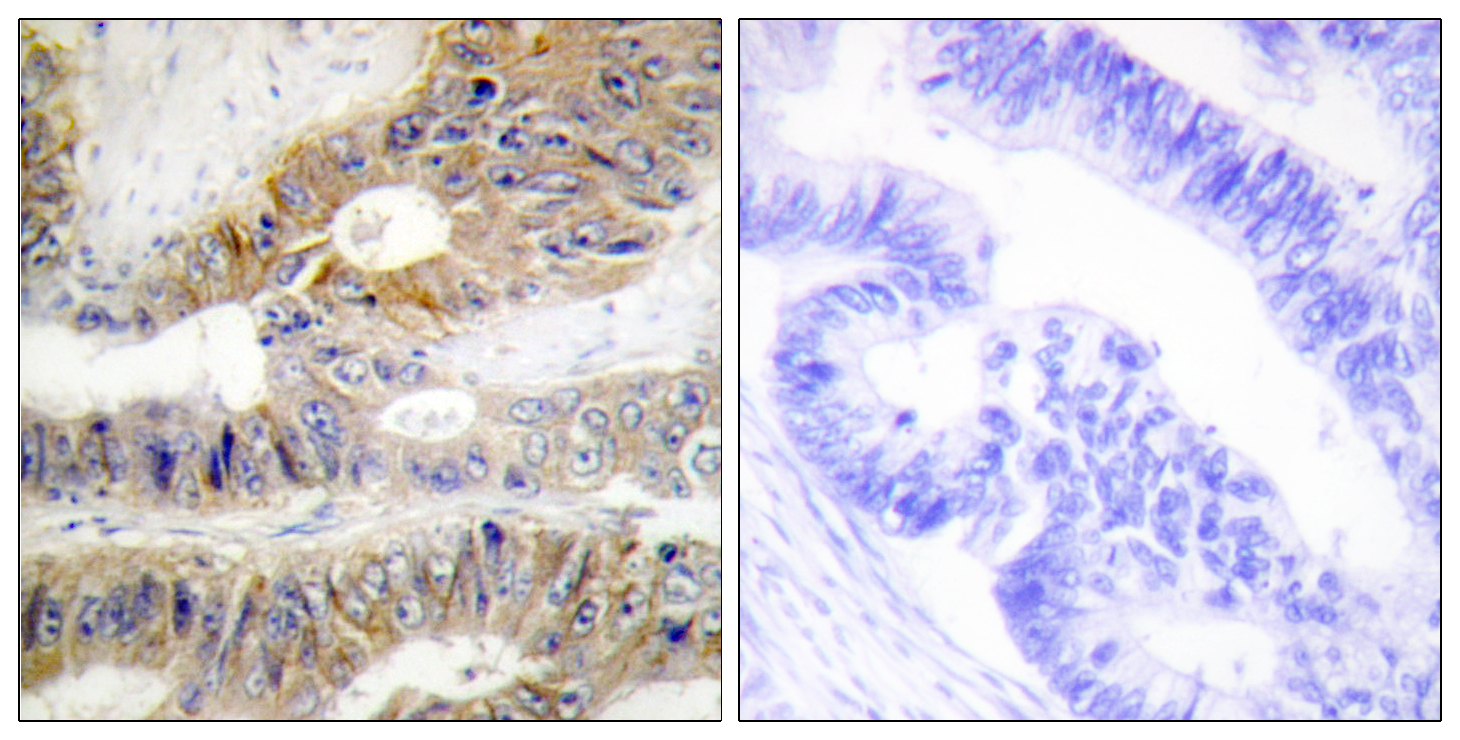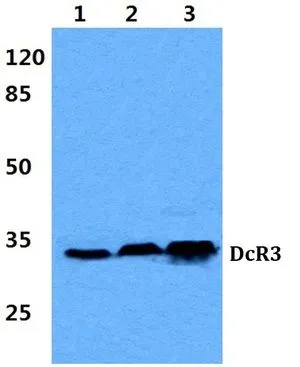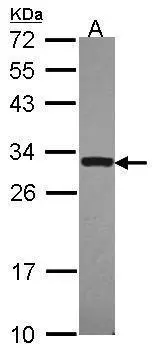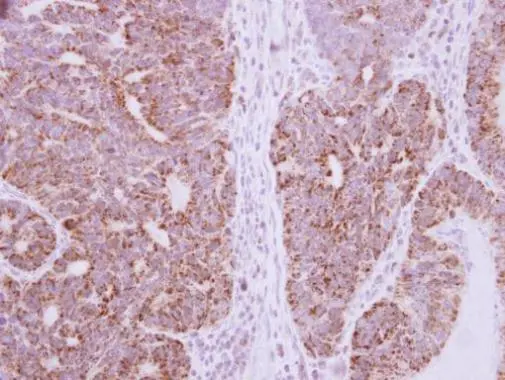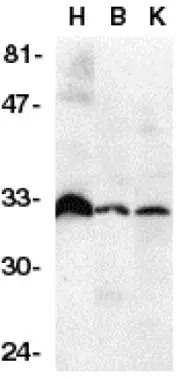
Western blot analysis of DcR3 in human heart (H), brain (B), and kidney (K) tissue lysates with DcR3 antibody (GTX28405) at 1μg/ml.
DcR3 antibody
GTX28405
ApplicationsWestern Blot, ELISA, ImmunoHistoChemistry, ImmunoHistoChemistry Paraffin
Product group Antibodies
ReactivityHuman, Mouse, Rat
TargetTNFRSF6B
Overview
- SupplierGeneTex
- Product NameDcR3 antibody
- Delivery Days Customer9
- Application Supplier NoteWB: 1microg/ml. *Optimal dilutions/concentrations should be determined by the researcher.Not tested in other applications.
- ApplicationsWestern Blot, ELISA, ImmunoHistoChemistry, ImmunoHistoChemistry Paraffin
- CertificationResearch Use Only
- ClonalityPolyclonal
- ConjugateUnconjugated
- Gene ID8771
- Target nameTNFRSF6B
- Target descriptionTNF receptor superfamily member 6b
- Target synonymsDCR3, DJ583P15.1.1, M68, M68E, TR6, tumor necrosis factor receptor superfamily member 6B, decoy receptor for Fas ligand, tumor necrosis factor receptor superfamily, member 6b, decoy
- HostRabbit
- IsotypeIgG
- Protein IDO95407
- Protein NameTumor necrosis factor receptor superfamily member 6B
- Scientific DescriptionThis gene belongs to the tumor necrosis factor receptor superfamily. The encoded protein is postulated to play a regulatory role in suppressing FasL- and LIGHT-mediated cell death. It acts as a decoy receptor that competes with death receptors for ligand binding. Over-expression of this gene has been noted in gastrointestinal tract tumors. Read-through transcription into this gene from the neighboring upstream gene, which encodes regulator of telomere elongation helicase 1 (RTEL1), generates a non-coding transcript. [provided by RefSeq, Feb 2011]
- ReactivityHuman, Mouse, Rat
- Storage Instruction-20°C or -80°C,2°C to 8°C
- UNSPSC41116161

